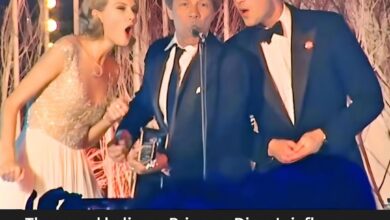His voice radiates power, a clear display of his immense talent and ability. His music will inspire generations to come
Elvis Presley’s performance of “You Gave Me a Mountain” during the Aloha from Hawaii concert is widely celebrated as one of the most poignant and electrifying moments in his career. The song, written by Marty Robbins, was a significant choice for Presley, reflecting themes of perseverance and personal struggle that resonated deeply with him. Robbins’ original version of the song, recorded in 1970, laid the groundwork with its powerful narrative of overcoming life’s hardships, but Presley’s rendition elevated it to new emotional heights.
The Aloha from Hawaii concert, held on January 14, 1973, was a groundbreaking event for several reasons. It was the first live global satellite broadcast, reaching an audience of over 1 billion people across 40 countries. Although the live broadcast was not shown in the U.S. until April 4, 1973, the international broadcast established a new standard for global live television events. This concert underscored Elvis’s immense popularity and his ability to connect with audiences worldwide, solidifying his status as a global icon.
Presley’s performance of “You Gave Me a Mountain” is often noted for its emotional depth and raw vulnerability. As Elvis sang the lyrics—”You gave me a mountain, this one, that I have to climb”—he conveyed a sense of personal struggle and introspection that paralleled his own life experiences. At this stage in his career, Elvis was grappling with various personal and professional challenges, including health issues, the pressures of fame, and complex personal relationships. This context lent a profound authenticity to his performance, making it more than just a vocal showcase but a deeply personal statement.
James Burton’s guitar solo in the performance added a powerful, almost haunting element that complemented Elvis’s vocal delivery. Burton’s technique and emotive playing enriched the performance, providing a perfect counterpoint to Elvis’s expressive singing. The interaction between Presley’s voice and Burton’s guitar created a dynamic and memorable musical experience that continues to resonate with audiences.
The production of the Aloha from Hawaii concert was a major undertaking, with meticulous planning and significant investment. Director Marty Pasetta worked closely with Elvis to ensure that the show would be visually impressive and engaging. The concert was held at the Honolulu International Center Arena, which was transformed into a grand stage for the event. Elvis’s decision to lose 25 pounds for the performance demonstrated his commitment to delivering a top-notch show. His physical transformation, along with his vocal prowess, contributed to the concert’s overall impact.
In addition to its artistic and emotional achievements, the Aloha from Hawaii concert had a charitable component. Proceeds from the event were donated to the Kui Lee Cancer Fund, honoring the late singer-songwriter Kui Lee, who had been a friend of Elvis’s and had passed away from cancer. This aspect of the concert added a layer of significance, reflecting Elvis’s generosity and his desire to use his platform for good causes.
“You Gave Me a Mountain” from the Aloha from Hawaii concert remains one of the definitive interpretations of the song, celebrated for its emotional intensity and Presley’s powerful delivery. The performance has been widely covered by various artists, but Elvis’s version is often considered the benchmark against which others are measured. It captures a moment when Presley was at the peak of his vocal and emotional powers, connecting with his audience in a way that only he could.
Overall, the performance of “You Gave Me a Mountain” exemplifies Elvis Presley’s extraordinary ability to convey profound emotion and personal struggle through his music, making it a standout moment in an iconic concert that continues to be remembered and revered by fans and critics alike.



